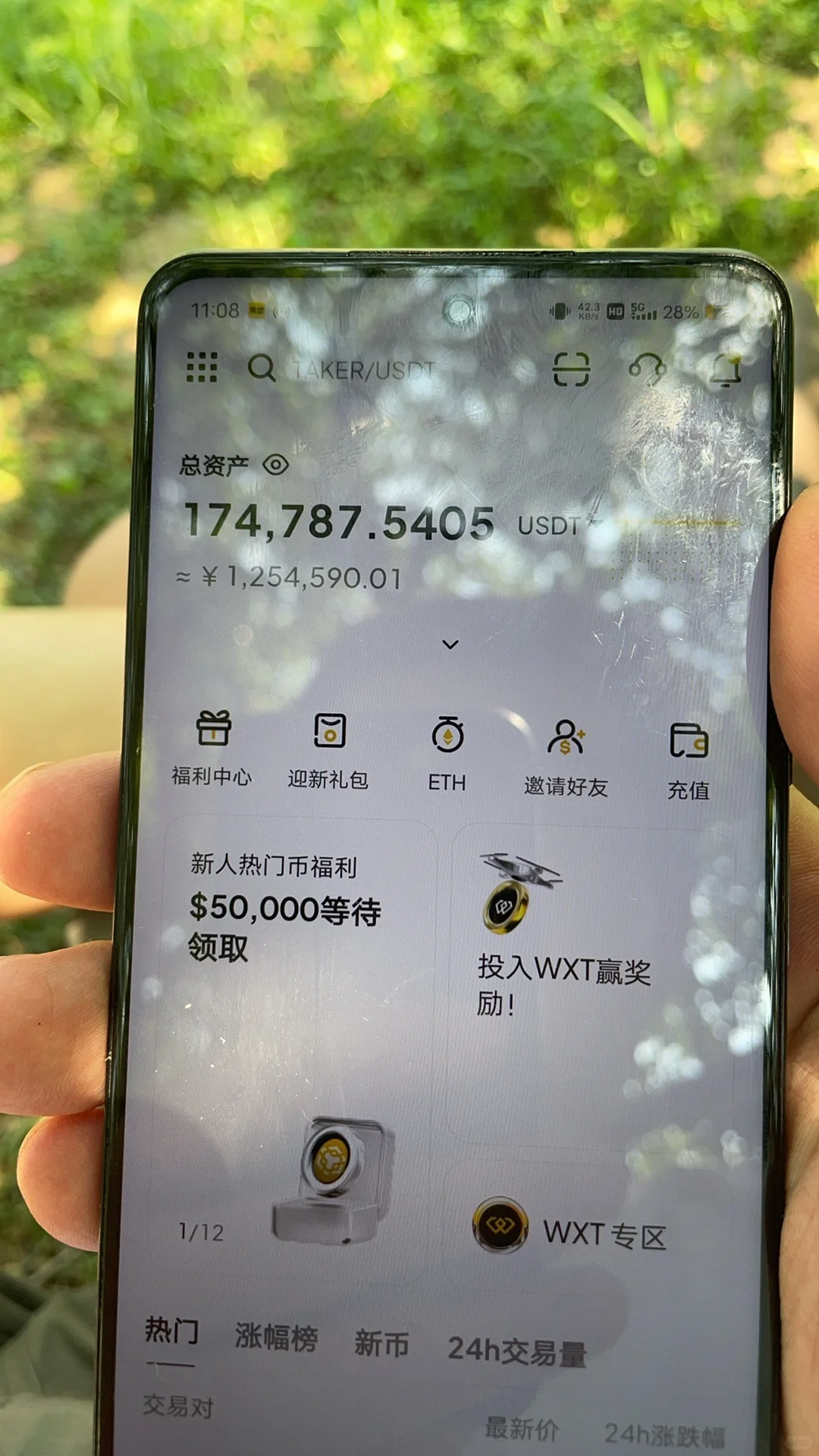I am 33 years old this year, and after graduating from university, I didn't find a job. I entered the crypto space and traded coins for two years, currently making about 10 million, starting with only 10,000.
This is not a story of overnight wealth, but the result of continuously executing simple strategies and making the right key choices in the crypto space.
▍How to accumulate the first 10,000 in capital.
During university, I accumulated my first startup capital by doing various small projects:
Taobao affiliate.
Flipping orders, completing tasks.
Sorting express deliveries, filling spots for apps.
I have tried all the ways to make small money.
Not out of interest, but simply wanting to create a little upward space for myself in the reality of a 'low starting point.'
▍Why enter the crypto space?
The reason is straightforward: to change fate.
If you are an ordinary person, with no resource background, no financial degree, and no Silicon Valley work experience, your choices are quite limited.
My thought at that time was—if I can’t turn things around in such a high volatility, high leverage, and extremely free market as crypto, then I probably won’t have another chance in my life.
▍My trading thoughts: extremely simple, but executed properly.
At the time of entry, I thought BTC was too expensive, so I mainly played with ETH at the beginning. ETH had good leverage and liquidity at that time.
Gradually expanding to mainstream altcoin spot operations.
My logic has always been based on two core principles:
Choosing coins is clear enough.
Don’t chase small coins, and don’t randomly touch low liquidity stocks.
Keep a close eye on a few mainstream altcoins + ETH, and profit from their rotation.
Position management is stable enough.
Cut losses when the market is bad and enlarge positions to catch trends when the market is good.
Never go all in, don’t rely on luck to double your money, but rely on the 'execution system' to amplify compound interest.
Doing this is not flashy or exciting, but as long as the market comes, the profits start to be released quickly.
▍The choice paradox everyone has to face: which step will you choose wrong?
Assume you have two equal amounts of funds:
One bought BTC, currently up 30%.
One bought ETH, which is currently down 30%.
Now you must act; how will you choose?
A. Hold both without action.
B. Sell BTC to buy ETH.
C. Sell ETH to buy BTC.
D. Clear both positions.
Most people would choose B: sell the BTC that has risen a lot to buy more of the ETH that has fallen.
The psychological motivation behind it is actually very common:
BTC has risen, worried about a pullback, thinking 'let's secure some profits first.'
ETH has dropped, and I feel reluctant, thinking 'it’s already very cheap.'
But the reality is often like this:
The strong become stronger, and the weak remain weak.
You just sold BTC, and it continues to rise; you just bought ETH, and it continues to fall.
At this point, most people will realize that it might be better not to act at all—at least the BTC portion is still profitable.
The most counterintuitive action—selling ETH to buy BTC (option C), is often the optimal solution in terms of probability and returns.
▍Overall, the strategy scores for different options are:
Profit priority: C > A > D > B.
This choice paradox is not a theoretical issue, but a psychological trap that 80% of investors encounter in real trading.
Most people's choices in front of the market are not wrong in technical judgment but are wrong in human instinct.
▍Conclusion
The biggest barrier in the crypto space is not technical analysis, not news grasping, but whether you can:
Control your hands.
Endure loneliness.
Keep doing the right thing, even if it seems 'wrong' in the short term.
Making money is not accidental; it is about stubbornly sticking to some 'seemingly not smart' practices that go against human nature.
Choose strong ones, follow the trend, minimize actions, and stabilize positions.
This is my experience after two years of real compound interest; if you are also willing to trust the system and execute strategies, perhaps you can avoid many pitfalls.


